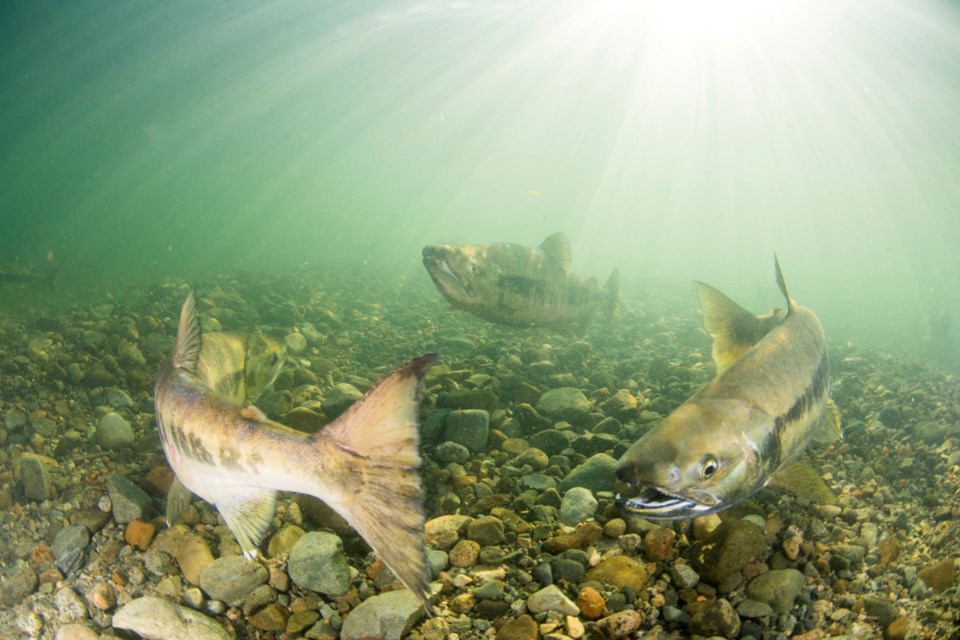Salmon in the Fraser River are under threat from the Trans Mountain pipeline, according to a new report by the Raincoast Conservation Foundation.
Wild Salmon, Pipelines and the Trans Mountain Expansion details the potential effects a spill from the pipeline or associated tankers could have on salmon in the Fraser and the river’s tributaries.
“Easy access to cheap, abundant oil has created a high standard of living for many cultures and societies,” the report reads. “At the same time, the extraction, refining, distribution, and use of this oil – as energy and in products – is increasingly undermining many of our planet’s life forms and the fragile balance of conditions that support climate stability and human prosperity.”
The report outlines the challenges of cleaning up diluted bitumen (dilbit) should it spill in the river. The lower Fraser’s sediment level and salinity increase the risk of the dilbit submerging, making it difficult to recover, the report says.
“Once oil has submerged below the water’s surface, there is almost no ability to detect, contain, or recover that oil. In cases where oil sinks, recovery is unlikely unless the spill occurs in sheltered, accessible locations, and even then, the environmental cost of oil recovery can exceed the benefits.”
That dilbit would contaminate the habitat of spawning, rearing and migrating salmon, the report says.
The authors of the report also try to disprove what they say is a common misconception about salmon – that they’re only in the river briefly each year, while spending the rest of the time out at sea. With various species on different life cycle schedules, “there really isn’t a month when there’s not salmon in the lower Fraser,” report author Misty MacDuffee told the NOW.
MacDuffee, a biologist and director of Raincoast’s wild salmon program, said the report does not contain new data or research. It is a repackaging of submissions Raincoast made to the National Energy Board in 2015, in a process that eventually approved the twinning of the pipeline that will nearly triple its capacity, if completed. That expansion would also mean a sevenfold increase of tankers leaving Trans Mountain’s Westridge terminal on the Burrard Inlet.
“It was a technical report and we felt that more people really needed to know about the risk to salmon because salmon is such an important group of fish ecologically, economically [and] culturally,” she said.
The report, with an executive summary written in layman’s terms, is an attempt to broaden understanding of the threat to salmon posed by a potential oil spill, MacDuffee said.
“We need to make our findings public,” she said. “Everybody else needs to know why we are so concerned about these things.”



